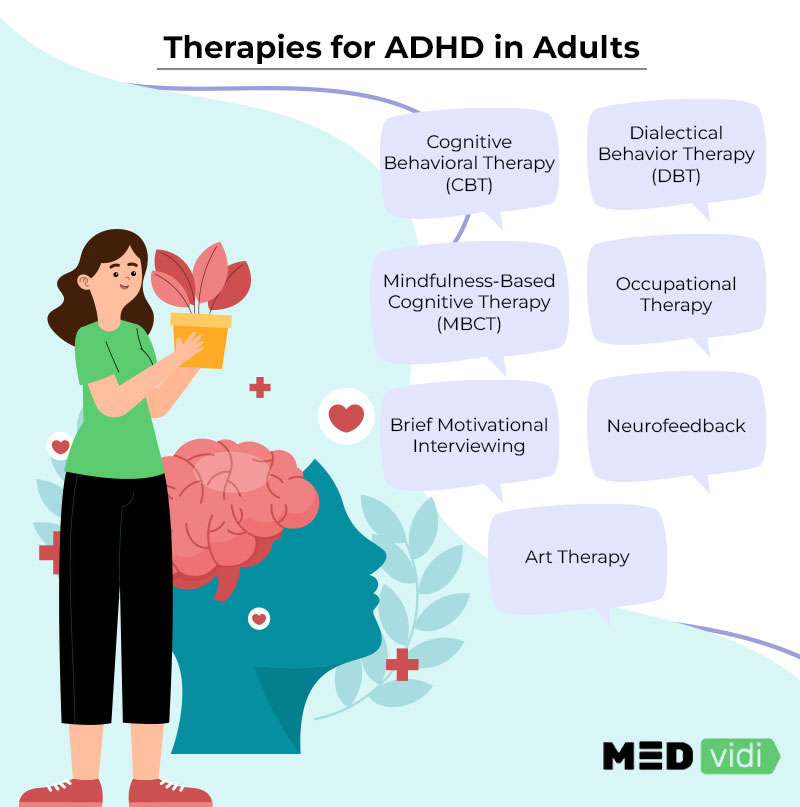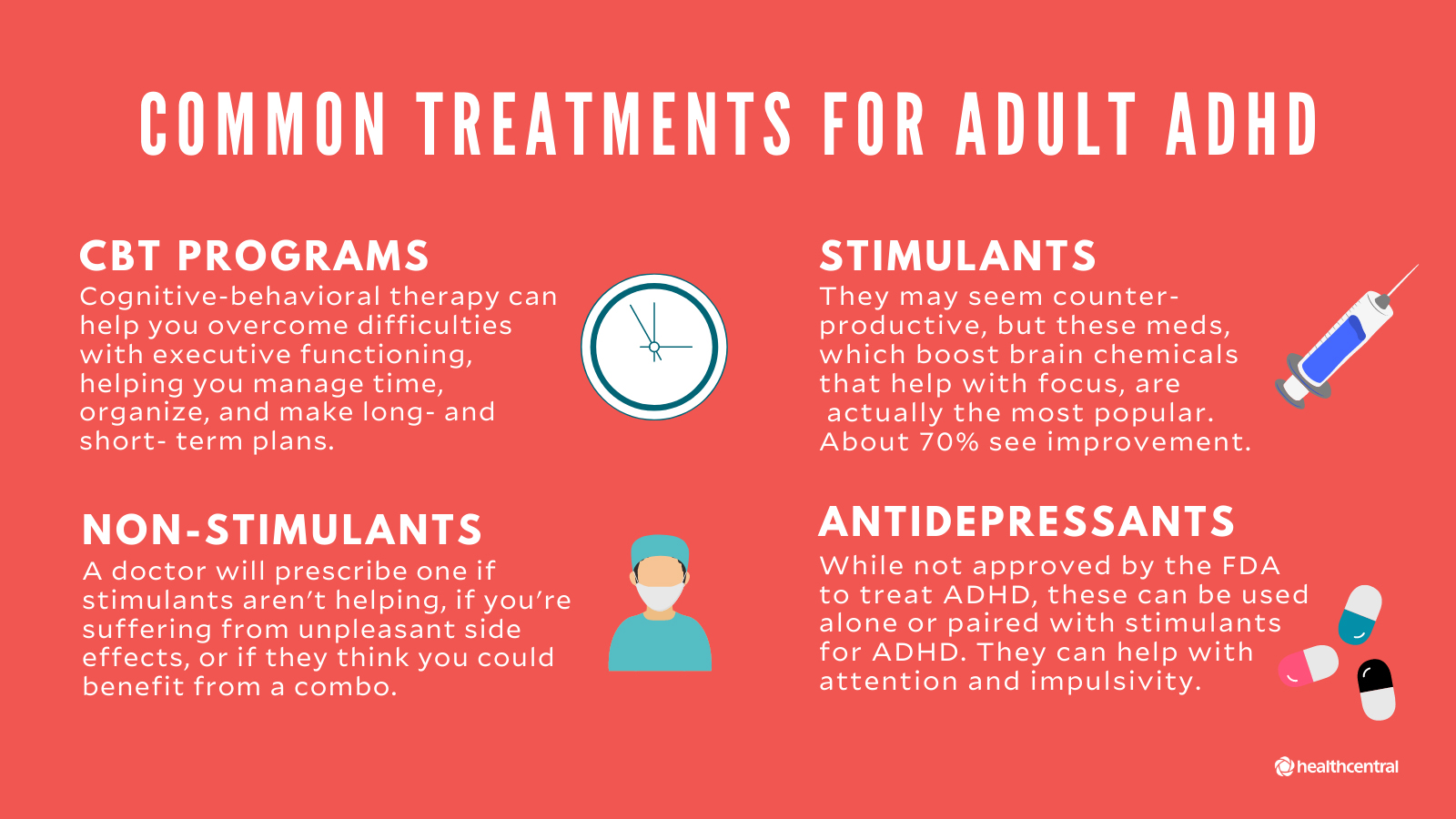Same Day Mental Health Services for Prompt Assistance and Care
Same Day Mental Health Services for Prompt Assistance and Care
Blog Article
The Advantages of Customized ADHD Therapy Prepare For Better End Results
The implementation of individualized ADHD therapy plans has actually emerged as a critical approach in enhancing healing outcomes for individuals impacted by this problem. By recognizing the one-of-a-kind symptoms of ADHD in each person, these customized interventions advertise greater interaction and inspiration, ultimately causing more effective coping methods. This customized strategy not only addresses academic and work difficulties yet also promotes boosted social partnerships and total quality of life. The true extent of these benefits elevates vital inquiries concerning the specific parts that add to long-term success and exactly how they can be optimized for varied populaces.
Recognizing ADHD Variability
Although Attention-Deficit/Hyperactivity Condition (ADHD) is typically viewed as a singular condition, its indications can differ substantially among people. This variability is affected by an array of factors, including age, sex, existing side-by-side conditions, and ecological contexts. Children with ADHD might exhibit hyper behaviors, while grownups may mainly struggle with interest deficits. Sex distinctions likewise play a role, as men are more regularly identified with ADHD and frequently present more overt signs and symptoms, whereas women might present with less noticeable inattentiveness.
Additionally, people with ADHD may experience a spectrum of emotional and behavioral challenges, such as stress and anxiety or oppositional defiance, that can make complex diagnosis and treatment. It is likewise worth keeping in mind that ADHD can present in different ways throughout various cultural contexts, affecting how signs and symptoms are recognized and dealt with.
Key Components of Personalization
Customized ADHD treatment plans are grounded in several crucial elements that ensure efficient administration of the problem. An extensive evaluation is vital, involving standardized ranking ranges, meetings, and behavioral observations. This detailed analysis enables clinicians to understand the person's one-of-a-kind symptoms, strengths, and obstacles.
2nd, the involvement of several stakeholders, consisting of parents, teachers, and the individual, adds to an all natural view of the individual's requirements. Cooperation promotes a helpful atmosphere that can adapt to the individual's context and way of living.
Third, therapy plans ought to be flexible and versatile, permitting modifications based on continuous responses and the person's advancing requirements. This flexibility allows the assimilation of numerous restorative strategies, such as behavioral treatments, psychoeducation, and medication administration.
Additionally, social and contextual variables should be taken into consideration. Identifying the person's history, values, and preferences makes sure that the treatment is appropriate and respectful.
Last but not least, normal follow-ups and assessments are important to check development and make necessary modifications. By concentrating on these vital components, personalized ADHD treatment plans can considerably improve the performance of treatments, leading to boosted end results for people with ADHD.
Improved Involvement and Motivation
To efficiently promote improved involvement and motivation in people with ADHD, it is necessary to incorporate techniques that reverberate with their interests and toughness. Individualized treatment plans that line up with a person's passions can cause increased participation in therapeutic activities, promoting a feeling of ownership and excitement for the procedure.
Making use of interactive and innovative strategies can also substantially improve inspiration. As an example, including gamification components or real-world applications of abilities can make tasks a lot more enticing and appropriate. This not only catches interest but additionally enhances finding out through satisfying experiences.
Additionally, establishing possible and purposeful objectives tailored to the person can additional hints strengthen motivation. When people see their progression in the direction of personally considerable goals, they are more probable to continue to be involved. Routine comments and acknowledgment of achievements can additionally endure inspiration, developing a positive comments loop that encourages ongoing initiative.
Last but not least, promoting an encouraging atmosphere where people really feel recognized and valued can considerably impact their interaction degrees. When therapy strategies are developed collaboratively, including input from the person, they are more likely to feel bought their trip, ultimately causing enhanced end results in managing ADHD.
Improved Coping Strategies
Creating enhanced coping techniques is important for people with ADHD, as it furnishes them with effective devices to navigate daily challenges. A personalized treatment strategy permits for the recognition of specific coping devices customized to the person's unique needs and scenarios - ADHD treatment. Strategies such as mindfulness, time monitoring abilities, and organizational approaches can be integrated into additional resources everyday routines, fostering a sense of control and decreasing anxiety
Mindfulness methods, including reflection and deep-breathing exercises, assistance individuals with ADHD concentrate their interest and regulate their emotions. Time administration techniques, such as making use of timers or damaging tasks into smaller sized, workable steps, can minimize feelings of bewilder. Furthermore, business devices like planners and checklists can improve performance and accountability.
Long-lasting Favorable End Results
Implementing individualized ADHD treatment plans can lead to substantial long-term favorable end results for people. These customized approaches, which think about unique signs, choices, and life situations, assist in much more efficient management of ADHD signs gradually. By focusing on the specific needs of the individual, these plans boost adherence to therapy procedures and foster better involvement in therapeutic tasks.

Furthermore, personalized therapy plans can substantially lower the risk of comorbid problems, such as anxiety and anxiety, which are often connected with ADHD. Early treatment and constant assistance help individuals build strength and coping approaches, advertising overall psychological health and wellness.
Eventually, the long-lasting favorable outcomes of individualized ADHD therapy plans not just enhance the lifestyle for people however also add to their general health and success in various life visit domain names. This alternative strategy underscores the significance of individualized care in managing ADHD efficiently.
Final Thought

Report this page